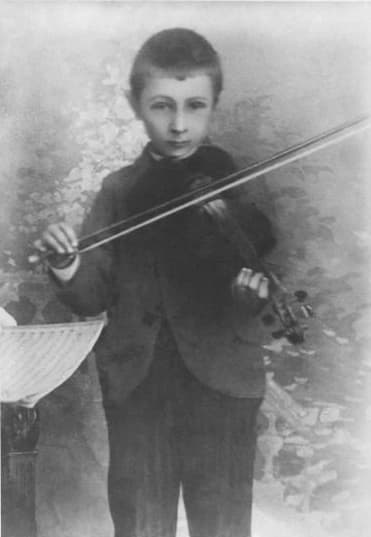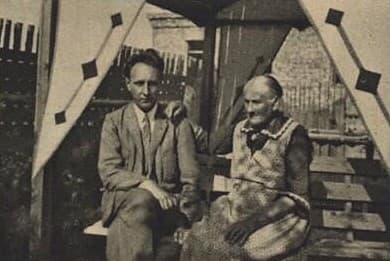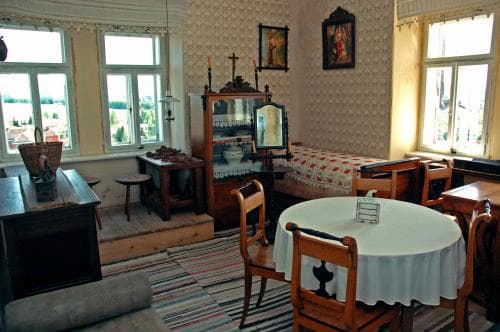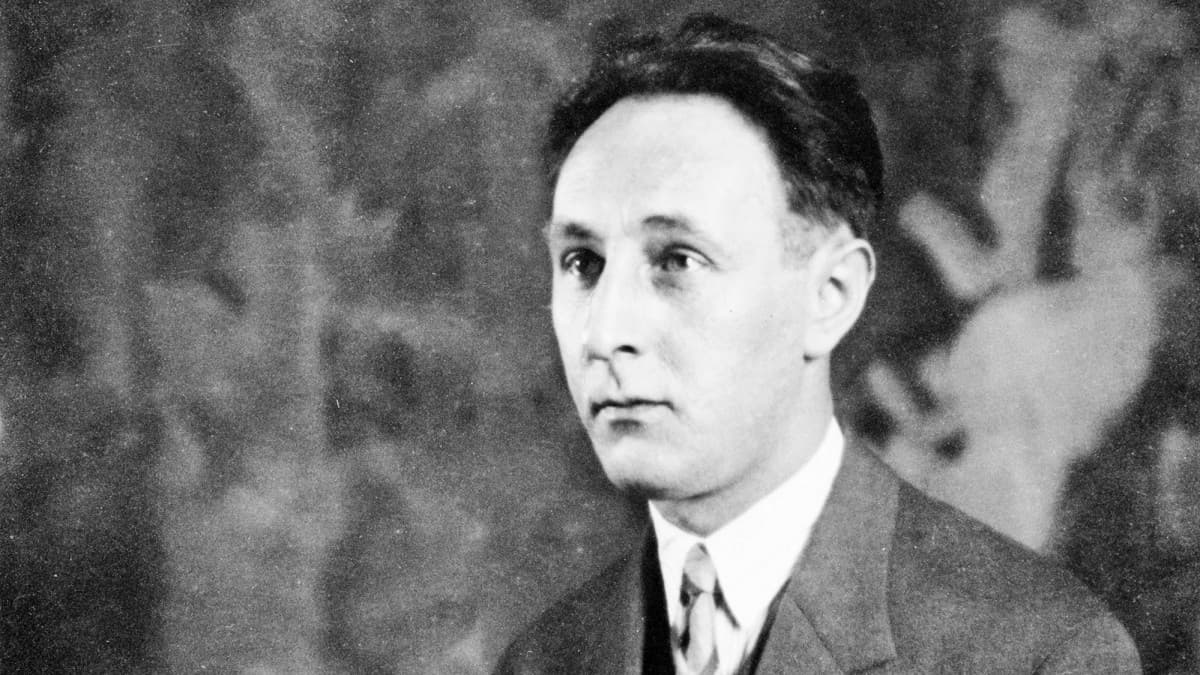In the years preceding World War II, Bohuslav Martinů was a much-respected composer experimenting with jazz, folk, and avant-garde creations in Paris. Forced to flee to the United States in 1940, he soon became the living composer whose works were most played by U.S. symphony orchestras. Once the fear of communism infected every level of the arts, however, Martinů was overshadowed by the likes of Bartók and Stravinsky. In fact, back home in communist Czechoslovakia, his music was banned as he was considered a traitor for emigrating to the West.
Bohuslav Martinů: Le Revue de cuisine
Unusual Birthplace: Polička

Bohuslav Martinů, ca 1897
The town of Polička is located in the Pardubice Region of the Czech Republic, situated on the borderline of the historical lands of Bohemia and Moravia. The cityscape is dominated by the tower of St. James Church, a structure that had been destroyed by fire in 1845. During the period of reconstruction, it was decided that the new church tower should have a small living quarter for a sexton who would also serve as a fire warden. And that small living quarter would turn out to be the somewhat unusual birthplace of Bohuslav Martinů.
His father Ferdinand was a shoemaker by profession, and he accepted the sexton position in 1889 to supplement the family income. Bohuslav was born at the top of the church on 8 December 1890, but his parents Ferdinand and Karolina were immediately worried as they had lost two male infants in previous years. Karolina had been disowned when she had a child out of wedlock and had survived as a single mother until marrying Ferdinand. Ferdinand had always been interested in the theatre, and he volunteered as an actor at the local Dramatic Society.
Bohuslav Martinů: Variations on a Slovak Folksong (Meredith Blecha-Wells, cello; Sun Min Kim, piano)
First Musical Steps

Bohuslav Martinů with his mother, 1927
As a child, Bohuslav was a small and sickly boy, and he frequently had to be carried up the 123 steps to the tower. His introduction to folk music was provided by a boarder, who was affectionately called “Grandpa.” He loved to sing and had a steady supply of folk songs in his head, and he would later construct a simple violin for Bohush. Living below the church bells in the tower, the young boy was surrounded by music. He later remembered, “Often when I climbed over the beams, the sound of the organ reached my ears. And from the streets below I heard the strains of violins. These impressions eventually formed a certain picture, a certain style.
Bohuslav was introduced to the violin at the age of seven, and he took lessons twice a week from the village tailor. He practiced diligently and advanced rapidly, and according to his siblings, he could read music before he could read words. A biographer writes, “he became obsessed with music, and at the age of eight he had demonstrated an unusually gifted brain for music that enabled him to create it abstractly, transposing it on paper, and he started to compose.”
Bohuslav Martinů: Three Horsemen (Martinů Quartet)
Polička Quartet

Bohuslav Martinu Centre in Policka
The family moved down from the tower to the centre of the old town when Bohuslav was eleven. Ferdinand had taken on a job in a savings bank, and Bohuslav started to teach himself to play the piano in the hall of the Dramatic Society. He also became an avid reader, but his speech was described as tongue-tied and slow in his responses. He also had “a persistent congenital defect, which he called sickness that prevented him from engaging in any kind of physical activities.”
Inexorably drawn to music, Bohuslav became the leader of the “Polička Quartet” at the age of 14. This chamber music ensemble regularly performed a variety of chamber works, including quartets by Haydn, Mozart, and Beethoven. His mother arranged for Bohuslav to change teachers, and from 1905 he studied with Josef Vintr, a barber by trade. He advanced phenomenally well, and Vintr refused further pay for lessons after just a couple of months.
Bohuslav Martinů: String Quartet No. 1 (Panocha Quartet)
Towards Prague

Bohuslav Martinů
Martinů stepped in front of the audience in a solo recital in 1906. Together with the local schoolmaster who accompanied him on the piano, Martinů vowed the audience and the critics. He received rave reviews in the local newspaper, and a number of family friends urged his parents to let Bohuslav try out for the Prague Conservatory. Ferdinand had some connections in Prague, and the matter was discussed with director Karel Knittl.
Like all other candidates, Bohuslav would have to take an entrance examination, and if he were to pass, would be admitted into the first-year class on a provisional basis. Only during that first year, it would be decided if he would be accepted. Hearing the encouraging news, the town of Polička started a fund drive to provide a scholarship. The fund drive succeeded and provided 100 gulden a year for the boy’s three-year education. It was time to take the entrance examination, and with a bit of lobbying, Martinů was admitted on a provisional basis.
For more of the best in classical music, sign up for our E-Newsletter
